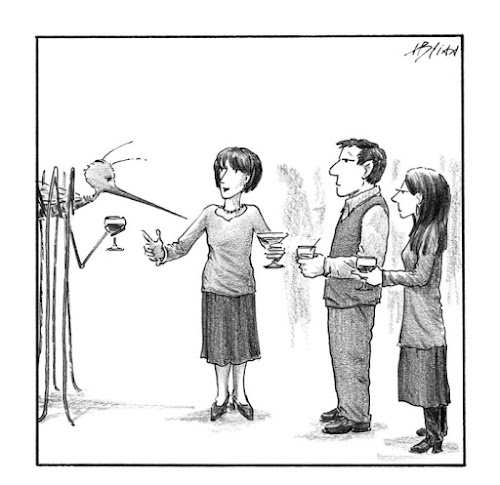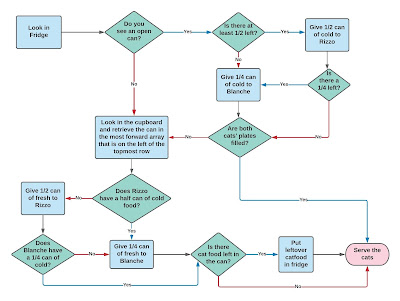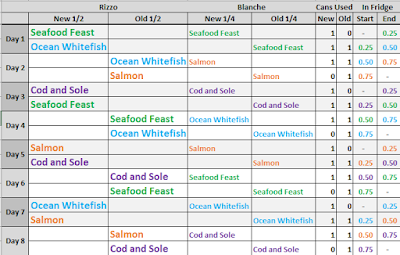Wednesday, September 30, 2020
Dance Anthem of the Daisies
Sunday, September 27, 2020
All Together Now
Justice Ruth Bader Ginsburg (may she rest in peace) may have been tragically foiled in her plan to thwart a right wing takeover of the Supreme Court merely by surviving a Trump presidency. That is the mythology that will surely be her legacy. Then again, she may have died simply exerting her privilege to hold the office for life. She is the 36th of 106 former Supreme Court Justices in history to die rather than retire after all (bringing the proportion for this mode of vacancy to 34.0% of the total). Her passing creates a weird echo to the last Supreme Court justice to vacate the office the hard way-- her good friend and legal rival Antonin Scalia whose death in 2016 (the 35th in office) came even earlier in the last year of Obama's administration than Justice Ginsburg's has at the end of Trump's current term. Although the coincidence provides anyone who needed it (I didn't!) an illustration of the looseness of Senate Majority Leader Mitch McConnell's adherence to any kind of principal and ethics over the perquisites of wielding political power-- with months to go before November, he noisily refused to allow hearings on Obama's nominee until voters had had a chance to elect a new president, whereas without yet knowing who Trump's nominee to replace Ginsburg would be, he promised to push the confirmation through as swiftly as possible with less than 45 days to go before the election-- it's uncharitable to believe that the satisfaction of this demonstration of McConnell's cravenness is the outcome she would have wanted. To say that McConnell is being inconsistent is disingenuous when his position on this as on every other question in his purview is in perfect keeping with his single minded determination to use his legislative authority to exert hostility toward the powerless majority. Had Ginsburg retired in time for Obama to replace her with a younger justice as she was reportedly implored to do as early as 2013, she may have missed becoming a cultural icon and hero of the pussy hat brigade, but she might also have forestalled rather than hastened the end of federal protection of a woman's right to choose an abortion in all 50 states. In short, the last laugh is not yet hers.
It has not been a complete failure, however. After a week of hagiography, iconography and lionization, culminating in their fallen hero being the first woman in the country's history to lie in State, the resistance was treated to the rare spectacle of Donald Trump facing actual citizens in the wild outside of one of his staged rallies, as he visited the Supreme Court to pay his respects and was greeted by a chorus of boos from mourners. "Vote him out! Vote him out!" they chanted like sweet music. Then in true liberal fashion it occurred to someone that the mob voice could be harnessed for a constructive message: "Grant her wish! Grant her wish!" they admonished the executive in reference to what Ginsburg's granddaughter reported was a direct quote from the Justice days before her death, to wit: “My most fervent wish is that I will not be replaced until a new president is installed.”
Hah! As if!
I have fantasized many times about what I would say to Donald Trump if he had to listen to me. It would probably be a sputtering mess of vitriol, but it would be a relief to have even just the chance to sneer a venomous heartfelt, "You suck!" to his face. Why do I hate him so much? It isn't just a political, philosophical difference (whatever his is anyway). It's more personal. I want to wipe the smug off his face. I'd like to do whatever I can to bring as much failure into his life as possible. Truthfully, it's not even a Donald Trump thing. I'd feel the same pleasure telling Nancy Pelosi off to her face if I were given the magical gift of spontaneous truth telling, or Ted Cruz or Joe Biden, Pete Buttigieg, Mitch McConnell, Chuck Schumer, Bill Clinton*, and while we're fantasizing, Chris Cuomo, Jake Tapper, Jeff Bezos, Bill Gates, the remaining Koch Brother. And what the hell Derek Hough (just because). These are the beauties that we let run the show. These are the turkeys lucky enough to have their hands on the reins who are too stupid to know what to do with it. Donald Trump is particularly bad because his mediocrity as a human being is in your face. But if I let myself unleash a spew of hatred on him, one thing I do know is that as good as it would make me feel it would have 0 effect on him. There's no penetrating that skull.
That is why, given the choice between "Grant her wish" and "Vote him out" my vote would always be for the one that at least makes me feel better. Vote him out. Please.
~~~~~
* Democrats outnumber Republicans on my list not because they're necessarily worse but because their treachery is something that as a person who has voted Democratic most of my adult life I take more personally. I have a longstanding prejudice that Republicans are the way are because of a mental or personality defect, whereas for neoliberal Democrats, the problem is due to a character defect.
Saturday, September 19, 2020
Feeding Flow
 |
| Rizzo-adjacent Medieval Troubador Cat |
 |
| Blanche-like Zen cat (Hishida Shunso, Black Cat, 1910) |
Saturday, September 12, 2020
Ludic Freedom
This was my plan. And then, before I had a chance to write a word of it, I learned that David Graeber had died. Graeber, an American anarchist anthropologist teaching at London School of Economics (since famously being fired without cause when he was up for tenure by Yale in 2006 probably for writing in support of a student expelled for activities organizing the Graduate Student Union at the university) had written iconoclastic books-- Debt: The First 5000 Years and Bullshit Jobs among them-- and was credited with the genesis of the phrase "We are the 99%" that inspired and outlived Occupy Wall Street. I'd read Debt which delivers the earth shattering news that the principle of debt upon which much of our social hierarchy and economic system has historically been based and which enriches so few (who alone are free to flout its obligations) and immiserates so many around the world is, in spite of the formidable state apparatus we've erected to enforce it, simply a moral choice we've made and as we've suspected all along, not a very good one.
Reading about Graeber's influence and impact in an excellent appraisal by Nathan J Robinson of Current Affairs, I was alerted to a short almost speculative piece Graeber wrote for the Baffler in 2014 called What's the Point If We Can't Have Fun? In the essay, Graeber discusses an alternative theory to the prevailing one on consciousness and cognition. He takes philosopher Daniel Dennett as representative of the materialist point of view. Less hard line on the question of free will than some of his more strident fellow "anti-choicers" (to coin a term), Dennett subscribes to the more forgiving variety, Compatibilism, which holds that free will is not incompatible with a materialistic determinism after all, granting that what we experience as choice may be at the core the product of mechanistic forces with a dose of quantum uncertainty thrown in, but that this does not discount our experience of it as choice (a state summarized by Arthur Schopenhauer with the phrase "Man can do what he wills but he cannot will what he wills."). This state gives us what Dennett calls, "Free will worth wanting" and makes engagement in acts of moral persuasion worthwhile pursuits. Some philosophers have introduced an intermediary step between the purely mechanistic and the apparently conscious experience of free will, to wit "emergence"-- a threshold beyond which the less deterministic properties latent in the structures underlying pre-consciousness emerge to be experienced and exercised as will.
Graeber rejects determinism even in its most palatable compatibilistic form, and takes issue with decreeing will emergent on the basis that it explains nothing. He instead entertains as an alternative what is termed sometimes panpsychism, sometimes panexperientialism (for instance by the British philosopher Galen Strawson). This is the surprising notion that everything in the universe to the most elemental level, far from being inert matter at the whim of whatever physical law might be operative in its locality at a given time might in fact itself be imbued with rudimentary "will" or specifically a propensity to take whatever fork in the decision-tree of its circumstances that it fancies. Choice for its own sake, which Graeber suggests might be the essence of what objective human observers might term "fun" might be at the heart of everything. How else to explain how matter which tends to inertia and entropy might on its own team up with other matter in configurations of ever increasing complexity (culminating in the improbable configuration I like to call Myself). The freedom at all levels of the universe to choose based on whim, pleasure, the pursuit of fun is what Graeber calls "ludic freedom" (from the latin ludus - sport, which is also the root of ludicrous-- itself perhaps a maligned word? Ok, let's not go crazy.).
For a pretty confirmed materialist, I have to admit that as cursory as my understanding of the concepts of ludic freedom are based merely on a speed reading of Graeber's essay, I was instantly prepared to drop my deterministic convictions to embrace this notion of freedom. Recognizing that that might be a bit hasty, it suffices for me to say I take my readiness to jettison what was nearly a given for me to be an encouraging sign that the stakes have lowered for me, which I take to mean Graeber might have found an opening in me to yet new and unexpected truths-- illustrating a gift that characterizes much of Graeber's life work.
I once wrote a meditation (just for the hell of it) on how life might have arisen from conditions on earth however many billion years ago, and trying to jump the gap from inert matter to self-replicating life, I found myself wanting to use language not unlike what I encountered in Graeber's article, so perhaps I am receptive. In any case, imagining how the universe might operate with this sort of physics invites new, exciting perspectives on chemistry, biology and human behavior. Subatomic matter finds pleasure in the company of like matter, and decides to team up to create molecules which makes the universe suddenly a lot more interesting. Molecules find solidarity in the composition of proteins; proteins collaborate on organisms (Graeber rhapsodizes on the liberating implications for the philosophical exemplar of dull robotic existence, the lobster). Eventually, we get humans whose whimsical, creative wills thanks to ludic freedom have a framework for being capable of concocting surprises in perpetuity.
The implications for all kinds of ethologies previously considered inevitable, rote, mechanical, is endless. Could the mosquito, for example, just find the prospect of annoying giant hot hairy apes with its itchy saliva amusing as hell? Maybe to mosquitoes, the pursuit of human flesh is an extreme sport. If even the lowly mosquito is capable of what Nietzsche calls the will to power, might thermotaxis be experienced not so much as an algorithm to which the mosquito is inexorably subject but as a belief system to which it ecstatically subscribes? Or is the prospect of writing about the tedious predictability of mosquitoes just no longer fun?
 |
| Host: "Helen, Ted, May I introduce Melania Victor." Guest: "Zzwwrrrzzwwrrzzt!" Host: "What's that? Oh, I'm sorry, Malaria Vector!" (Harry Bliss - New Yorker) |

